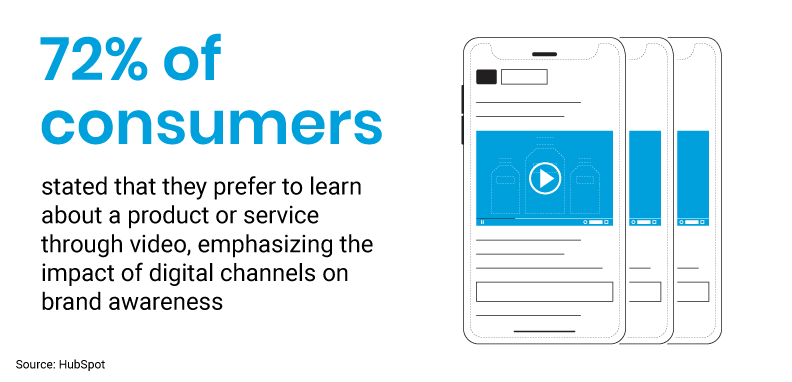Brand awareness is crucial for the success of businesses. It shapes consumer perception and influences their buying decisions.
In a saturated marketplace with endless options, having strong brand awareness helps you stand out. But it’s not just about recognition; brand awareness helps to foster trust and familiarity among your consumers. When faced with choices, people are more likely to go for a brand they recognize!
There are many channels that can help increase your brand awareness. Social media ads, email marketing campaigns, and even traditional mail marketing services are great examples.
When you maintain consistent branding across all touchpoints of your business, you create a united brand identity that resonates with consumers. This, in turn, helps to build brand loyalty.
Don’t miss these 15 incredible brand awareness statistics!
Brand Awareness Statistics Overview
- According to a report by Statista, global spending on advertising reached $641 billion in 2019, highlighting the importance placed on brand promotion globally.
- In a survey by HubSpot, 72% of consumers stated that they prefer to learn about a product or service through video, emphasizing the impact of digital channels on brand awareness.

- A study by Sprout Social revealed that 89% of marketers found an increase in brand exposure through social media, indicating the significance of platforms like Facebook, Instagram, and Twitter.
- Nielsen’s Global Trust in Advertising report found that 92% of consumers trust recommendations from people they know, including influencers, underlining the impact of influencer marketing on brand awareness.
- Mobile advertising contributes significantly to brand awareness, with eMarketer reporting that mobile ad spending accounted for 68.2% of digital advertising spending in 2019.
Consumer Perception and Behavior
- A study by Edelman revealed that 81% of consumers need to be able to trust the brand to buy from them, emphasizing the critical role trust plays in building brand awareness and loyalty.
Impact of Consistent Branding
- Lucidpress states that consistent branding across all channels can increase revenue by up to 23%, showcasing the positive correlation between consistent branding and brand awareness.
- According to a Nielsen study, 92% of consumers trust word-of-mouth recommendations from friends and family over other forms of advertising, demonstrating the power of personal referrals in building brand awareness.

- The Corporate Finance Institute notes that effective branding increases brand recall and recognition, with consumers being 80% more likely to choose a brand they recognize.
- BrightLocal reports that 87% of consumers read online reviews for local businesses, illustrating the impact of online reviews on shaping brand perception and awareness.
Industry-Specific Insights
- According to a Shopify study, 82% of shoppers make purchase decisions based on brand trust, highlighting the significance of brand awareness in the e-commerce sector.
- In the tech industry, a report by Statista indicates that 63% of consumers are more willing to buy from familiar brands, emphasizing the importance of brand awareness in a competitive market.
- Nielsen’s Global Survey on Corporate Social Responsibility found that 55% of consumers are willing to pay extra for products and services from companies committed to positive social and environmental impact, impacting brand awareness in the FMCG sector.
- J.D. Power reports that 60% of car buyers begin their research online, highlighting the digital landscape’s influence on brand awareness in the automotive industry.

- In healthcare, a study by PatientPop found that 72% of patients use online reviews as the first step in finding a new doctor, emphasizing the role of online presence in building brand awareness.
Final Thoughts
Brand awareness is the foundation for other marketing efforts. When a brand is top-of-mind for consumers, that brand gains a competitive edge in introducing new products or services.
This makes it easier to enter the market and have innovations accepted, as consumers are more willing to try offerings from a brand they already know and trust.
By investing in building a strong brand presence, businesses not only differentiate themselves from competitors but also leave a lasting impression in consumers’ minds.






